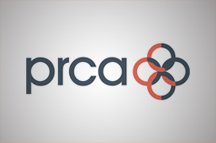The PRCA has written to the Electoral Commission seeking clarity on ten ‘fundamental questions’ that remain unanswered about the impact of the Lobbying Act on charity campaigners and PRs.
The Government’s Lobbying Act, passed by the House of Lords in January, has received significant criticism for attempting to regulate the campaigning activities of charities during the 2015 General Election in ‘Part 2: Non-party Campaigning’.
The new rules will take effect on 19th September and are being overseen by the Electoral Commission.
The PRCA Not for Profit and Charity Group has written to the Electoral Commission with ten key questions that need to be addressed about how the rules will affect the work being done by charity campaigners and PRs.
 Simon Francis, Director at Claremont and Vice-Chair of the PRCA’s Not for Profit and Charity Group, said: “It’s of huge concern to in-house teams, agencies and freelancers alike that with just weeks to go before non-party campaigner regulations coming into force, there are still fundamental questions that remain unanswered about the impact of the Lobbying Act.
Simon Francis, Director at Claremont and Vice-Chair of the PRCA’s Not for Profit and Charity Group, said: “It’s of huge concern to in-house teams, agencies and freelancers alike that with just weeks to go before non-party campaigner regulations coming into force, there are still fundamental questions that remain unanswered about the impact of the Lobbying Act.
“The concerns the PRCA’s members have raised range from fundamental questions about what is covered, to the extent to which spending limits apply to staff or volunteer activity, and into the detail of how any spending should be reported.
“While the general advice to PRs is to keep calm and keep campaigning, the industry needs to be aware that the Lobbying Act does not just have an impact on lobbyists.
“All PRs need to ensure they will not fall foul of these highly complex and bureaucratic regulations.”
The PRCA has previously campaigned for changes to the Lobbying Act’s Part 1, which relates to the introduction of a statutory register of lobbyists, dubbing it “not an Act which will stand the test of time”.
The PRCA has called on the Commission to respond by the 19th August, to enable in-house teams, agencies and freelancers adequate time to prepare prior to regulations coming into force.
Following is the letter written to the Electoral Commission:
Dear Sir or Madam,
We write as Chair and Vice-Chair of the Public Relations Consultants Association (PRCA) Not for Profit and Charity Group.
We wish to express our concern that, with just weeks to go before the regulations for non-party campaigners during the 2015 General Election coming into force, there are still fundamental questions that remain unanswered about the impact of the Lobbying Act.
The PRCA is the largest public relations association in Europe, representing 12,000 people in agencies, in-house communications teams, and individuals. We have asked our not for profit and charity members for their most pressing concerns about the rules and these are outlined below.
We look forward to your responses by the 19th August to enable the charities, PR agencies, in-house teams and freelancers we represent adequate time to prepare prior to regulations coming into force.
Definition of what is covered
- If one political party (or group of candidates, etc) publicly supports an apolitical campaign following its launch, does this fact make the campaign subject to the Act from that point forward? And is this support ever considered to have ended or lapsed?
- If you are a charity spending government money on service delivery (e.g. via direct grant or contract) and this requires public awareness campaigning on related-issues, would this be covered?
- If any restrictions imposed by the Act lead to a breach of a pre-existing contract for not delivering on agreed targets (either by a supplier working with an organisation or an organisation with a contract with government), how should the organisation deal with this?
Extent of work covered
- Do spending limits cover activity carried out by staff where the only cost is their salary and where working on the campaign is a proportion of their role (e.g. time of spokespeople, such as a chief executive, conducting media interviews) If so, how would this be calculated?
- How should overtime and pro-bono support / secondments from suppliers be calculated and reported?
- Do PR agencies need to register, or are they covered by their client(s) registration(s)?
- Is time spent training volunteers and providing them with skills to campaign covered?
Complying with the regulations
- How detailed will the breakdowns need to be? i.e. should we count for in-house printing/copying, posting content on-line (including a share of broadband connection, etc), time spent sending a tweet?
- Is there any allowance for commercial confidentiality in the reporting?
- If the organisation has a retained marketing agency / suppliers working across campaign and non-campaign activity, how should this be broken down in reports?
Finally, if third party campaigning covered by this part of the Act triggers the need to register as a lobbyist due to Part 1 of the Act, is that cost counted towards the spending limit?
Yours sincerely,
Mario Ambrosi, Head of Communications, Anchor
Simon Francis, Director, Claremont Communications
Chair & Vice Chair of the PRCA Not for Profit and Charity Group












